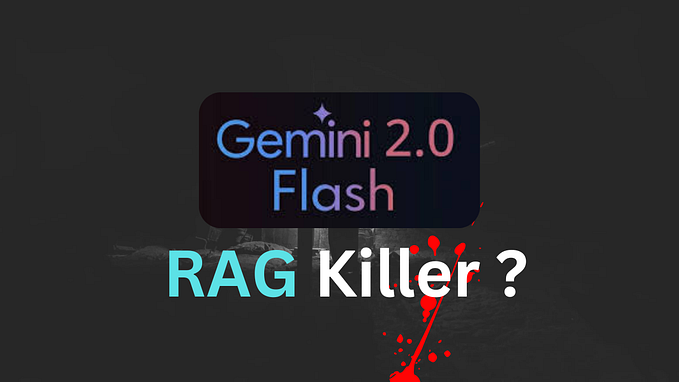Tata’s Super App: The Rise Of Super Apps In India

Super App becomes a popular buzzword worldwide. WeChat and AliPay are cited as the most super apps successful cases that serving multiple needs like messaging, ordering food and groceries, calling a taxi, paying bills, etc. Super app like Grab and Go-Jek also implement the same strategy of do-everything platforms in Southeast Asia. And, it will be a big mistake if we don’t talk about super app in India. Tata group plans to launch a super app that will bring all its offerings.
Let’s begin!
What is everyday super app?
Originally, a super app is many apps within an umbrella app. As the name suggest, it is all-in-one experience to access to many different services. So, what’s the best way to understand how they work?
To become super apps, each company is taking different way. Some added more functions into their app through in-house development of new functions. Meanwhile, other platforms integrated their systems to third-party companies via mini programs.
Read also: WeChat — The super app exceed 1 billion daily active users
For example, China’s Super App implemented mini program strategy, which is many small apps within a native app. But, in Southeast Asia, Grab and Go-Jek have mostly developed their own services into their super apps.
Super apps like WeChat or AliPay have contributed to the development of cashless society in China. They are super aggregators for everything — hire a cab, order a meal, book a spa, make a donation, send or receive money, buy insurance, watch a movie, sell a product, and many more.
As for Grab, the firm partnered with banks across the region such as Moca for a mobile payment service in Vietnam, Thailand’s Kasikorn Bank, and Malayan Banking Bhd (Maybank). While it also signed partnerships with Agoda and Booking.com for travel services.
Read also: Fintech — The rise of super app in Asia
The Race To Build Super App In India
Following the footsteps of WeChat, many apps in other countries also take notice. Indonesia came up with Go-Jek. Successful Grab from Singapore and Vietnamese ZaloPay are begin to sit up.
In the middle of all this, the idea of super app in India is a win-win for all. Because, India is a large trillion-dollar digital economy and a mobile-first market which is witnessing increasing penetration of digital services and usage.
The Tata Group will join in an already crowded super app ecosystem in India. Besides PayTM and Walmart’s Flipkart, other app majors like Reliance Jio have all attempted to forge the perfect ecosystem.
Reliance Jio and Facebook plan to build super app
Reliance Jio is reportedly aiming to launch a ‘Super App’ that provides over 100 services in one platform. The app will let users order goods and services on it and pay bills using in-app payment services.
Recently, the $5.7 billion deal with Facebook is another step by Reliance Jio towards a super app. Besides, the possible investment of $20 billion by Amazon in Reliance Retail will allow Reliance Retail. Therefore, Reliance Jio’s “super app” will integrate e-commerce, online bookings and payments — all-in-one place.
The Jio platform includes apps like Jio TV, Jio Saavn (music streaming), Jio News, Jio Cinema (video streaming), Jio Cloud, Jio TV+, Jio Health Hub, JioMoney (payment app), RJio (ecommerce), and others.
“In my mind, WhatsApp Pay and Jio Money will all hopefully get rolled into one”, Vikram Sud, an independent director at DBS told Business Insider.
Currently, Reliance Jio offers various services such as shopping, content streaming, groceries, payments, cloud storage services, ticket bookings, etc.
Paytm
Furthermore, Alibaba Group invested in Paytm, which has also brought together services like payments, ticket bookings, games, online shopping, banking, consumer finance, etc into one app.
In the early day, Paytm just focused on online processing services. Then, it launched its wallet systems, which is the key to success. Through Paytm wallet, users can pay bill (electricity, water, gas, broadband), book a train/flight/bus tickets, movie tickets, as well as buy insurance. Anything that could be done online was brought onboard. Moreover, their initial breakthrough came since Uber joined India. Uber partnered with Paytm and utilized their wallet framework.
Actually, Paytm is just one of the many Super Apps that are popping up in India. While Paytm is undoubtedly India’s first Super App, its dominance is being quickly challenged by newer apps.
In fact, Facebook, Reliance, and Alibaba are not the first to try out the super app in India. Let’s see how Hike super app works!
Hike
Hike is an popular Indian messaging app with 2 million weekly active users as of December 2019. From being a messenger app, Hike is also a super app that also offers games, news, and the ability to communicate with friends through Hike Sticker Chat.
But, after 6 years of developing, Hike’s founder, Kavin Bharti Mittal think that the super-app model isn’t the best way forward and won’t work in India.
We don’t think that the super app model is the best path forward from user experience stand point as customers want lesser things and many apps to do it.
Tata’s Super App
India’s Tata Group is planning to launch a super app by December or early next year. The super app will bring together its disparate consumer services for the first time.
All businesses under one umbrella
Reliance Industries raised $20bn from 13 foreign investors including Facebook and Google in its. Whereas, Tata Group is talking to Walmart Inc. for a $25 billion investment in super app. By offering a wide range of services in one place, Tata aim to attract and retain customers.
“It will be a super app, a lot of apps in apps and so on . . . We have a very big opportunity.” — Natarajan Chandrasekaran, Chairman of Tata Sons, the holding company of the group said.
“How do we give a simple online experience connecting all of this, and at the same time a beautiful omnichannel experience? That is the vision,” he also told the London-based Financial Times.
The super app will access to 100-plus group companies from watches, jewellery, eyewear, fashion, tea, coffee, fashion to financial services and healthcare, among many others.
Mr Chandrasekaran pointed that a range of services would eventually be available through Tata’s app, including food and grocery ordering, fashion and lifestyle, consumer electronics and consumer durables, insurance and financial services, education, healthcare and bill payments.
In addition, Tata Group is talking to Walmart Inc. for a $25 billion investment in super app.
Read also: How to make profit from super app model?
Tata vs Ambani super app battle
Mukesh Ambani, Asia’s richest person, was first to the market with Reliance Jio’s super app. He is ready a long way ahead into his master plan to set up Jio as a host of digital services.
In particular, JioMart has been doing good. In the previous month, Ambani’s O2O eCommerce has observed 4 times more orders than it was receiving in the pre-lockdown period.
Now, what makes Tata super app great? If Tata can provide a portal to its vendors to sell their wares, host data, and discount bills, building app like Aliibaba’s Tmall or Taobao isn’t too hard.
Besides, if the deal with Walmart comes on board, values the super app at $50–60 billion, takes place, it will be largest ever transaction in the Indian retail space.
Super App In India
In some ways, the battle of super app in India promises to reprise a similar battle for dominance of the Chinese market between Jack Ma’s Alibaba and Pony Ma’s WeChat.
But each country in the region has different needs. And, each platform needs to adjust to address that demand. The super apps like WeChat and Alipay influence in China due to China’s size and relative homogeneity as a market. In Southeast Asia, Grab and Go-Jek will find it difficult to achieve WeChat level ubiquity. And, this isn’t the case for super app in India.
“Expanding a super app regionally means facing competition that’s either going down to the same super app path or focused on a specific service for that local market,” Insignia Ventures Partners founding managing partner Yinglan Tan told KrASIA.
In the end, India is considering to be one of the world’s most promising tech markets. Due to the rising incomes among its 1,3 billion population and fast adoption of smartphones, India opens to Super App.
Apart from increased revenue, Super App also provide Indian companies large consumer data which can be harnessed to learn more about user behavior. Nevertheless, one thing to concern about is privacy when super app has onboarded third-party service providers.
Our experience
Building a Super App might seem like a promising idea. However, it might not be the right strategy for every business. Some factors that companies should consider:
- When comparing to create a single app, the cost, resources, and time in building super app is higher.
- A great user experience will make your users happier.
- If your services are too specific, it might not make sense to integrate them into one platform.
As the result, if you want to keep up with one of the most technology trends in 2020, we will give you consultation. Here, we can help you find the solutions to your issues.
You can contact us at contact@agiletech.vn or (+84) 936 281 059 for more information.
Related articles:









